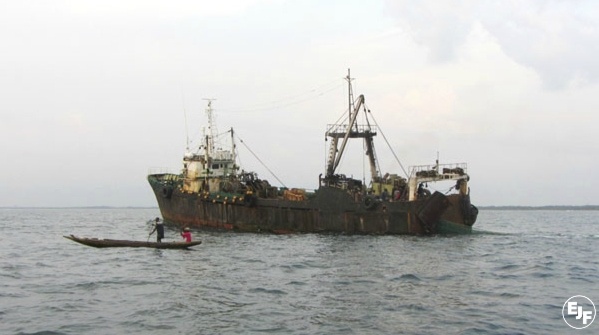
EJF presents at Brussels event on successes in fighting illegal fishing
Yesterday’s Brussels Briefing saw IUU experts and policymakers from the EU and African, Caribbean and Pacific countries, including EJF’s Oceans West Africa Project Coordinator, come together to discuss how best to tackle IUU, or ‘pirate’ fishing.
Pirate fishing takes 11 to 26 million tonnes of fish a year and represents 37% of the overall catch in West Africa, one of the regions most affected by this issue. Pirate fishing depletes fish stocks, damages marine environments and jeopardises the livelihoods of legitimate fishers. Since 2009, EJF has been working to eradicate pirate fishing in West Africa through community surveillance and its Fisheries Information Network (FIN).
Presenters at the Brussels Briefing discussed the trends, successes and challenges in combating pirate fishing in Africa, with Fiji's and Guinea’s efforts to tackle pirate fishing being used as case studies. EJF’s Olivier Laboulle talked about successes in fighting pirate fishing from the perspective of civil society and showcased concrete examples from Sierra Leone and Ghana. He also highlighted the positive impact of the 2008 EU Regulation on illegal fishing:
“The EU Regulation’s provision allowing NGOs to submit evidence of pirate fishing to the European Commission has given EJF critical leverage to ban pirate fishing from West African waters. It is important to strengthen it and to ensure its unified implementation by all EU member states.”
The Briefing showed that most countries sanctioned by the European Commission for their lack of effort in combating pirate fishing have recognised that the warning acted as a “wake-up call” and consequently boosted the resources and efforts allocated to sustainable fisheries management.
While the briefing highlighted the recent progress made, it also made it clear that there is a still a long way to go before pirate fishing is eradicated.
SIGN UP FOR OUR EMAILS AND STAY UP TO DATE WITH EJF